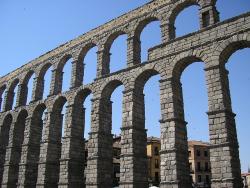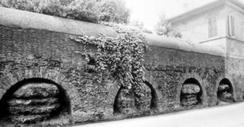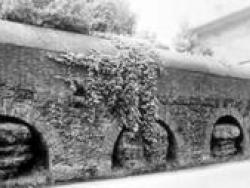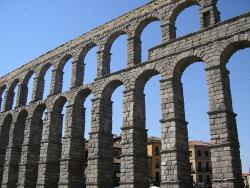For 2,000 years, Aqueducto de Segovia has been conveying drinking water from the Frio River to Segovia, approximately 18 kilometers away. Built under the reign of Roman emperor Trajan, the aqueduct is one of the most intact and best-preserved Roman engineering masterpieces. Roman engineers built the channel of the aqueduct with an average one percent gradient over its whole length.
Emperor Trajan


The roman emperor Trajan ordered a new aqueduct be built to bring fresh water to Italy's Trastevere region and parts of Rome. The water is collected from five springs that feed the lake at Bracciano, and traverses over 25 miles into Rome. To maintain an even gradient, the aqueduct follows a meandering alignment through the countryside to avoid hills and major valleys. The water runs through an open-channel canal that is either arch-supported, at-grade, or underground.
Innovations

The roman emperor Trajan ordered a new aqueduct be built to bring fresh water to Italy's Trastevere region and parts of Rome. The water is collected from five springs that feed the lake at Bracciano, and traverses over 25 miles into Rome. To maintain an even gradient, the aqueduct follows a…
Read More
For 2,000 years, Aqueducto de Segovia has been conveying drinking water from the Frio River to Segovia, approximately 18 kilometers away. Built under the reign of Roman emperor Trajan, the aqueduct is one of the most intact and best-preserved Roman engineering masterpieces. Roman engineers built…
Read More

